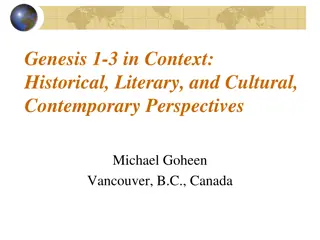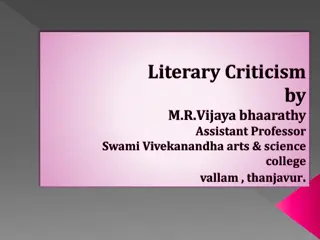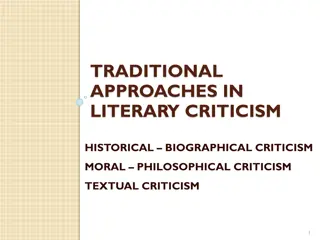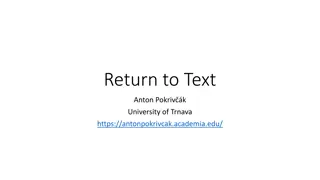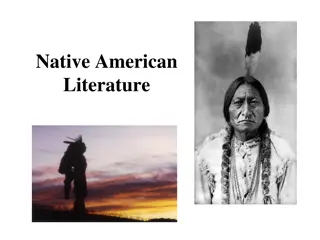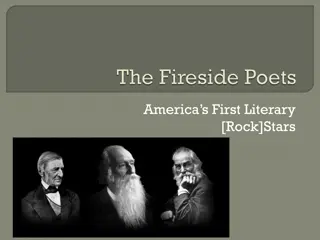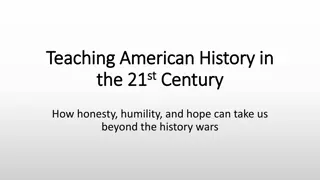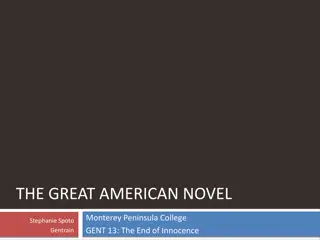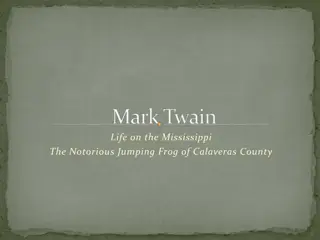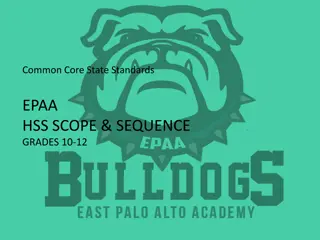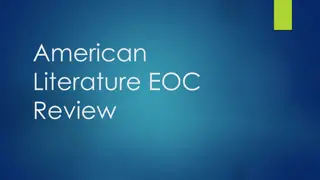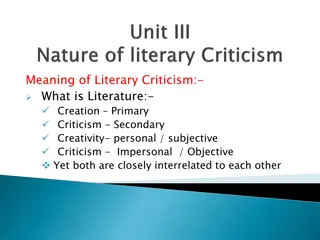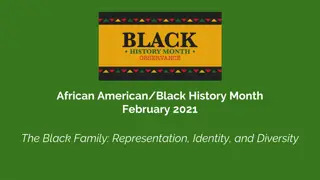Literary Evolution in American History
Puritan and Early Settlement literature focused on God and societal roles, while Rationalism and the Age of Reason introduced fact-based and persuasive writings. Romanticism reacted against rationalism, emphasizing nature and optimism. Transcendentalism, with writers like Thoreau and Emerson, explored truths beyond reason and experience.
Download Presentation

Please find below an Image/Link to download the presentation.
The content on the website is provided AS IS for your information and personal use only. It may not be sold, licensed, or shared on other websites without obtaining consent from the author.If you encounter any issues during the download, it is possible that the publisher has removed the file from their server.
You are allowed to download the files provided on this website for personal or commercial use, subject to the condition that they are used lawfully. All files are the property of their respective owners.
The content on the website is provided AS IS for your information and personal use only. It may not be sold, licensed, or shared on other websites without obtaining consent from the author.
E N D
Presentation Transcript
Puritan and Early Settlement literature spoke mostly of: God and our role in society as His servants Factual information what the land looked like how the Native American people acted what life in a strange new land was like
Balance of ideas in literature Puritan/Early Settlement literature GOD MAN
Rationalism and the Age of Reason Literature : Revolutionary Time Frame Still mostly fact-based literature Persuasive/Scientific in nature News articles were editorialized (LOTS and LOTS of opinions) Letters (LOTS and LOTS of letters)
Balance of Ideas in Literature Revolutionary Literature GOD MAN
Romanticism: Reaction to the Rationalism/Age of Reason movement In Europe and America Nature inspired the writers more than God Captured the energy and character of a new country whose frontier was expanding.
Romanticism (cont.) Writers had a preoccupation with atmosphere, sentiment, and optimism Fascination with the Supernatural Washington Irving and Henry Wadsworth Longfellow were America s most famous Romantic writers
Transcendentalism: Distinctive to American Literature (imitations, but none as successful) and our most influential concept to modern writers Philosophy derived from German Romanticism Transcendent forms of truth existed beyond reason and experience
Transcendentalism (cont.): The most famous transcendentalist writers were: Henry David Thoreau Ralph Waldo Emerson Walt Whitman Emerson said that every individual is capable of discovering this higher truth through intuition All of them turned their backs on material possessions to seek this transcendent truth
Balance of Ideas in Literature Romanticism and Transcendentalism MAN GOD
Self-Reliance Free Thought Nonconformity Confidence Importance in Nature
Tenets of Transcendentalism: Everything (Nature) is a reflection of God A person s instinct (intuition) can lead them to understand God s spirit Contemplating nature can allow you to transcend the real world and go to a higher, spiritual level (Expansion) Individualism and self-reliance are better than following others or depending on tradition. (Contraction) A person s true feelings and intuition are more valuable than book knowledge.



